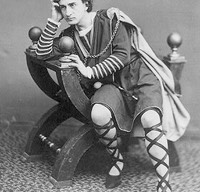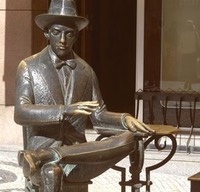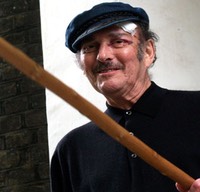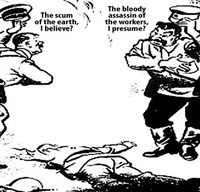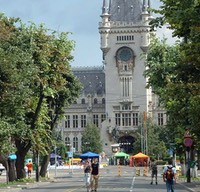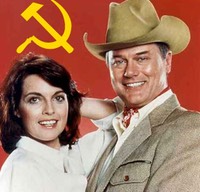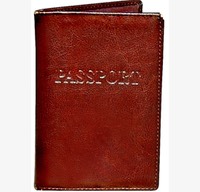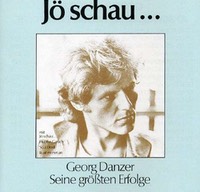Ceausescu's Africans
By Christopher Lawson
April 2005
If you posed the question: “Is there any aspect of life in Ceausescu’s Romania in the late 1970s that you miss now?” I would have to admit that I miss the presence of the African students. Generally studying medicine, engineering or architecture, the young Africans provided a dash of the exotic, adding a glimpse of the wider world to a closed society. The more adventurous and ambitious among them plunged into minor criminality and ran an alternative economy. By Romanian standards, they were generally well off. Young female students, seeking adventure and perhaps a new life beyond Moldova, found the Africans irresistible.
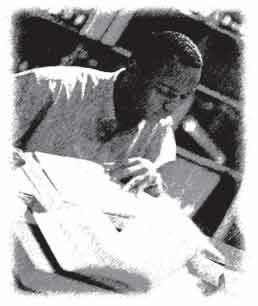
At the point I ought to state, quite categorically, that especially the Romanian medical education system, while lacking Western-style equipment, provided these students with a solid and pretty rigorous background for conditions in African countries. Many English-speaking countries required the graduates to follow a more Western-style top-up course before they could practice.
Since I had quite recently spent five years teaching in Swaziland, Botswana and Zambia, I found myself gravitating towards them. Apart from those from the poorest countries, such as Chad, the African students had a more western Weltanschaung than even the best educated, but untravelled, Romanians I had met. Many knew the West well, where they might well have friends and family, and travelled there frequently.
Practically every country on the continent and Madagascar was represented. All learned Romanian in an anul pregatitor. While the French speakers found the language a breeze, many English speakers also acquitted themselves well.
There were hustling, extravagant, Nigerians, intellectual Algerians, Moroccans, Tanzanians and Ethiopians, mildly disorganised Guineans from Conakry, totally disorganised Congolese from then-Zaire, elitist Ivoirians, one hugely likeable multilingual Portuguese-speaker from Guinea-Bissau, music-loving Zimbabweans and studious Malagasies. There was even a South African with a Botswana passport.
I recognised his thick, rich, township accent immediately when I heard him, slightly the worse from over-intake of Radeburger beer in the Hotel Unirea, railing at a hapless waiter: “True’s God, man, if you put a Boer (an Afrikaner) and a Romanian up against a wall, I will shoot the Romanian first!” Tswetswe was a tsotsi, a wide boy, with the sharp wisdom of street kids. “You know that cooking oil we have here, Chris, man, it is South African! I recognise the taste.” You have to remember that Romania’s trade connections at this time, with the Conducator’s frequent visits to Third World destinations, were so tentacular that the country was a net exporter of South American bananas.
It was the Africans who retold me the marvellous political jokes, told to them by Romanian friends. The best of the bancuri, extraordinarily obscene, involved dialogues between two flies who had taken up residence in the private parts of the Conducator and his much-reviled wife.
Many Africans worked the Black Market, some more effectively than others. The shrewdest of them all departed for the Black Sea in the summer where they offered complex exchange services for Polish and East German tourists from zlotys and Ostmarks into lei and dollars.
The Hotel Unirea always had African customers with shoulder bags stuffed with Kent cigarettes. A packet of Kent was exactly a dollar, 30 lei in the money of the time. The absurd official rate was 12. Capitalist Nigerians and socialist Tanzanians were the shrewdest operators. They diversified their product range beyond mere cigarettes into jeans, cosmetics and more. Very few French-speakers rivalled their marketing and sales skills.
A few snapshots. Once, after my two-year stay, I boarded the Wiener Waelzer at the Westbahnhof , sharing a compartment with a student from oil-rich Gabon. These West Africans had a colourful reputation. Dollar notes and condoms fell from the pockets of their designer jeans. My baggage contained a typewriter adapted to Romanian diacritics, a few books, the most subversive items I could think of bringing, and about five cartons of Kent cigarettes, with their mystical power.
The Gabonese had a huge windscreen, carefully wrapped in brown paper, for a Mercedes car. He had bought it in Germany on behalf of an Arab fellow-student who could not travel to the west.
When we reached the Hungarian-Romanian border at about 2 a.m., a Romanian colonel boarded the train. He zeroed in on our compartment. “Have you got anything good to smoke?” he asked, glancing up at the deliberately visible Kents in the luggage rack and settling himself comfortably down. We had a pleasant chat about nothing in particular. The police and customs followed him.
For three packets the customs officer forgot his carbon paper when he wrote the receipt for the typewriter, which of course would have to be taken in for annual checks of the typeface. Later he came back for more cigarettes for his boss and his brother “who was sick in hospital”. None of the officials even glanced at the brown parcel in the corridor.
“Tout etait perdu quand ils ont vu les cartouches,” reflected the Gabonese.
Back in Iasi, Joseph, from Arusha in the foothills of Mount Kilimanjaro, shrugged as he sat at his usual table. “If I were a student in America, I would have a vacation job to earn money. In Romania, this is my vacation job.” After five years Joseph had saved enough money to buy a car and have it shipped home to Dar-es-Salaam. Years later, he sent me a letter from Arusha. He was running a successful import-export business.
Missionary-educated Charles from Zimbabwe, the only other British citizen in town, was too bashful to remove his underpants when we practiced FKK, “freie koerperliche Kultur”, with Saxon friends in a mountain valley near Sibiu. But his modesty had not prevented him from deflowering an American nun while at secondary school in then-Salisbury, where he also protested against the illegal Smith regime.
As we strolled up the hillside that morning, a kindly Romanian grandmother came out from her village to greet us. Charles was the first African she had ever seen. He charmed her with his polite, fluent Romanian. She invited us into her village and poured us tuica from a huge barrel. Although it was ten o’clock in the morning and the sun was beating down, we couldn’t really refuse her hospitality.
Conditions for doctors and nurses in Mugabe’s Zimbabwe are so deplorable these days that they have led to a mass exodus of medical personnel. Those who remain make do with substandard equipment and lack the most basic necessities. Charles, who once protested against UDI, and knows all about dictatorships, has incurred the wrath of the ruling party by organising his staff in Harare’s major hospital.
I still don’t really understand the precise rationale for the huge African presence in Romania in those days. But I suspect that Ceausescu pocketed hard currency from UN agencies, and awarded the students some kind of pittance in lei. He cashed them in, just as he cynically exported Jews and Germans for money.
